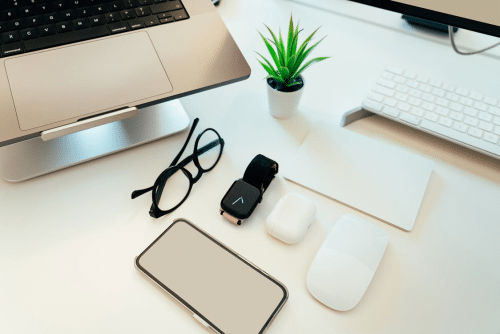How to Avoid the Trap of Endless Optimization
Brian Taylor July 8, 2025
How to avoid the trap of endless optimization is a growing conversation in classrooms, workplaces, and personal development circles alike. It’s a shift away from perpetual tweaking and toward sustainable systems that value depth, learning, and long-term thinking.
In a world obsessed with productivity hacks, self-improvement frameworks, and digital tools, it’s easy to believe that everything—our work, learning, and even our lives—should always be “optimized.” But the pursuit of endless optimization can quietly become a trap, especially in educational and societal systems that prioritize constant betterment over meaningful progress.

The Rise of Optimization Culture
From GPA boosters to quantified self apps, society increasingly favors efficiency over reflection. Students are advised to choose extracurriculars that look good on resumes. Professionals are encouraged to systematize every minute of the day. Even leisure is managed with data: sleep trackers, fitness analytics, language-learning streaks.
This optimization culture stems from tech-driven metrics and performance systems. It rewards visible growth—measurable improvements—often at the cost of critical thinking, creativity, and human complexity.
According to author and researcher Jenny Odell in How to Do Nothing, the pressure to constantly perform and refine ourselves can be “a form of coercion disguised as self-care.”
Why Endless Optimization Is a Trap
1. You Mistake Motion for Progress
Optimization often keeps us busy—refining systems, adjusting apps, reorganizing priorities—but not necessarily moving forward in meaningful ways. You might spend more time choosing the best note-taking tool than actually absorbing what you’ve learned.
2. You Lose Sight of Purpose
When you’re optimizing for efficiency, it’s easy to forget why you’re doing the task at all. Are you studying to understand, or just to game the grading rubric? Are you working to contribute something valuable, or just to meet an arbitrary metric?
3. You Burn Out
Constant refinement requires constant cognitive load. The mental energy spent optimizing processes is often better spent applying knowledge, reflecting, or recovering.
The World Health Organization officially recognized burnout as an occupational phenomenon in 2019—one often linked to “chronic workplace stress that has not been successfully managed.” Excessive self-improvement culture contributes to this stress.
The Optimization Problem in Education
In educational settings, students are particularly vulnerable to the optimization trap. From test prep platforms to productivity YouTube channels, learners are taught to “study smarter, not harder.” But smart often gets confused with efficient—and efficient doesn’t always equal effective.
- Students switch between apps, trying to find the perfect planner, instead of committing to a routine.
- They aim to maximize test scores with shortcuts instead of developing deeper curiosity.
- Teachers, pressured by evaluations and rankings, may optimize for test performance over authentic engagement.
Dr. Alfie Kohn, a leading critic of standardized testing, argues that “students are less motivated when they feel they’re being constantly measured instead of genuinely taught.”
Recognizing When You’ve Fallen Into the Trap
Before you can escape endless optimization, you have to spot the signs. Here are a few indicators:
- You switch productivity tools monthly, looking for “the one.”
- You feel guilty for not doing more—even when you’re making progress.
- You delay action until your system is “perfect.”
- You struggle to enjoy learning or creating because everything feels like a task to be optimized.
How to Avoid the Trap of Endless Optimization
This doesn’t mean you should ignore progress or abandon systems. It means knowing when to stop tweaking and start doing. Here’s how:
1. Define What “Enough” Looks Like
You need clear criteria for when a system is “good enough.” This could be as simple as: “If this note-taking setup lets me review concepts in 10 minutes per day, I’ll keep it for a semester.”
Set thresholds. Once they’re met, stop adjusting.
2. Focus on Impact, Not Just Efficiency
Ask: What outcome does this action support?
If a study method helps you understand and retain, that’s more valuable than a flashier app that shaves off five minutes. Focus on depth, not just speed.
3. Timebox Optimization Activities
Give yourself limits for planning and improving your systems.
“I’ll spend 30 minutes Sunday night setting up my week. No more.”
This keeps optimization in service of your goals, not the other way around.
4. Measure What Actually Matters
Instead of tracking how many pages you read, track how much you understood. Instead of counting tasks completed, note whether your energy was well-spent.
5. Create Fixed Systems with Flexible Edges
Rather than constant tweaks, build stable systems that serve you long-term. Then, revisit them every 3–6 months.
- Example: Use one calendar tool for a year, and reflect quarterly on its effectiveness.
- Example: Keep one method of note organization, and evolve it only when your needs change.
In Society: The Push for “Enoughness”
As burnout rises and attention spans shrink, more educators and thinkers are advocating for a counterculture of “enoughness.” The idea is that not everything needs to be streamlined, hacked, or constantly improved.
In fact, many breakthroughs—in education, policy, and the arts—come from slowness, depth, and uncertainty.
- The Slow Learning movement emphasizes depth over test performance.
- Restorative education programs in Europe encourage reflection over rapid content delivery.
- In workplaces, 4-day workweek pilots are reducing hours without sacrificing output—redefining what “optimized” truly means.
A Mindset Shift: From Optimization to Orientation
Rather than constantly refining your tools or routines, ask what you’re orienting toward. Are you using your systems to support curiosity, creativity, and contribution? Or are you just making the machine run faster?
Orientation focuses on values, not just output. It asks:
- “What do I care about?”
- “Who am I becoming through this process?”
- “Is this sustainable, or am I running in circles?”
That’s a better question than “How can I make this faster?”
Final Thoughts
The trap of endless optimization is subtle. It masquerades as productivity. It pretends to be progress. But left unchecked, it creates a loop where energy is spent refining, not realizing.
To avoid this trap, we need to shift from efficiency for efficiency’s sake toward meaningful, grounded, human-centered action. In education and society, this means creating room for reflection, for slowness, and for systems that support—not dominate—our goals.
Sometimes the most productive thing you can do is stop optimizing—and start doing.
Reference
- “Productivity Delusion: Why ‘Hustle Culture’ is Making Society Less Creative” — LinkedIn article by Villamarin‑Rodriguez: https://www.linkedin.com
- “On Slow Productivity and the Anti-Busyness Revolution” — Cal Newport Substack: https://calnewport.com
- “The Ultimate Guide To a Four‑Day Week” — 4DayWeek.io & Forbes report: increased well-being, productivity gains up to 40% in pilots. https://4dayweek.io





